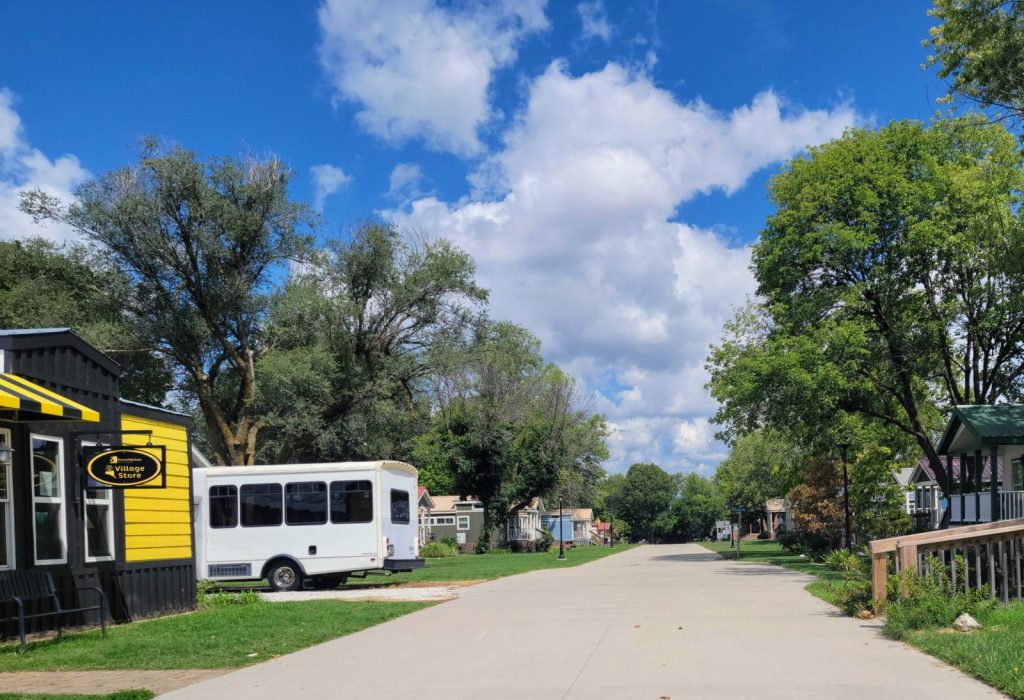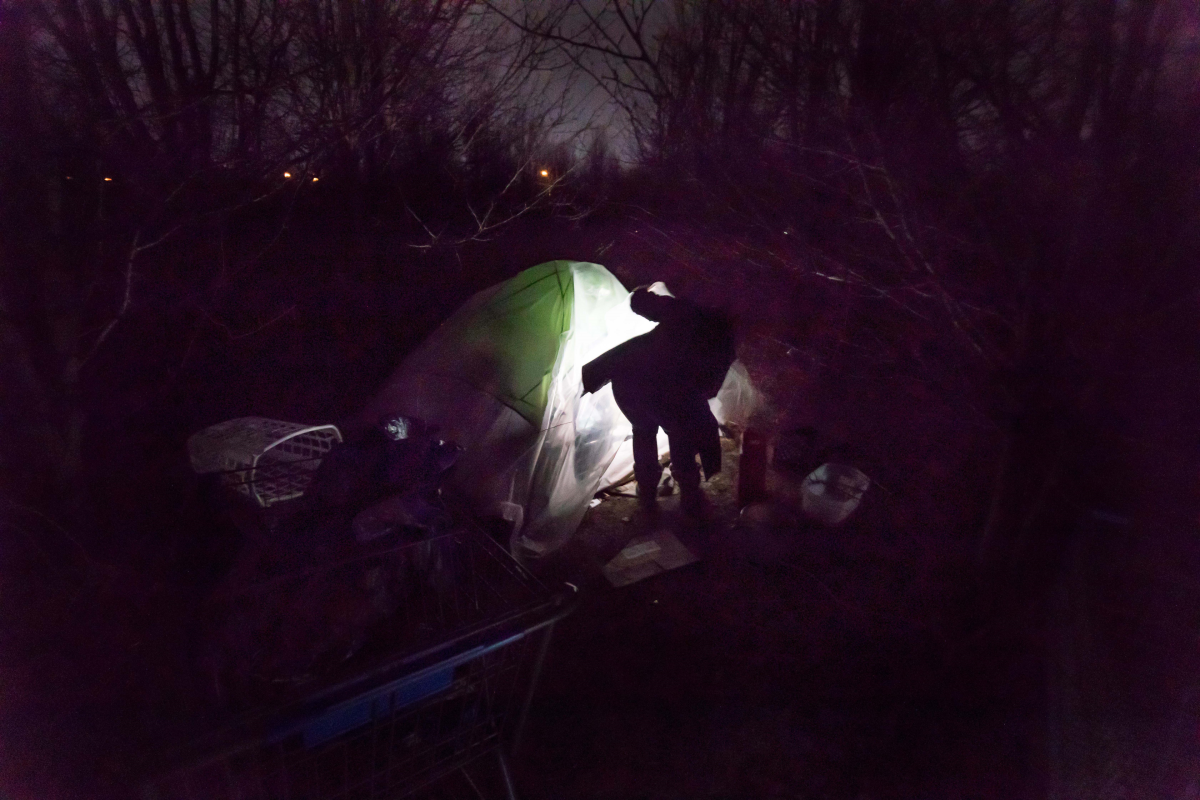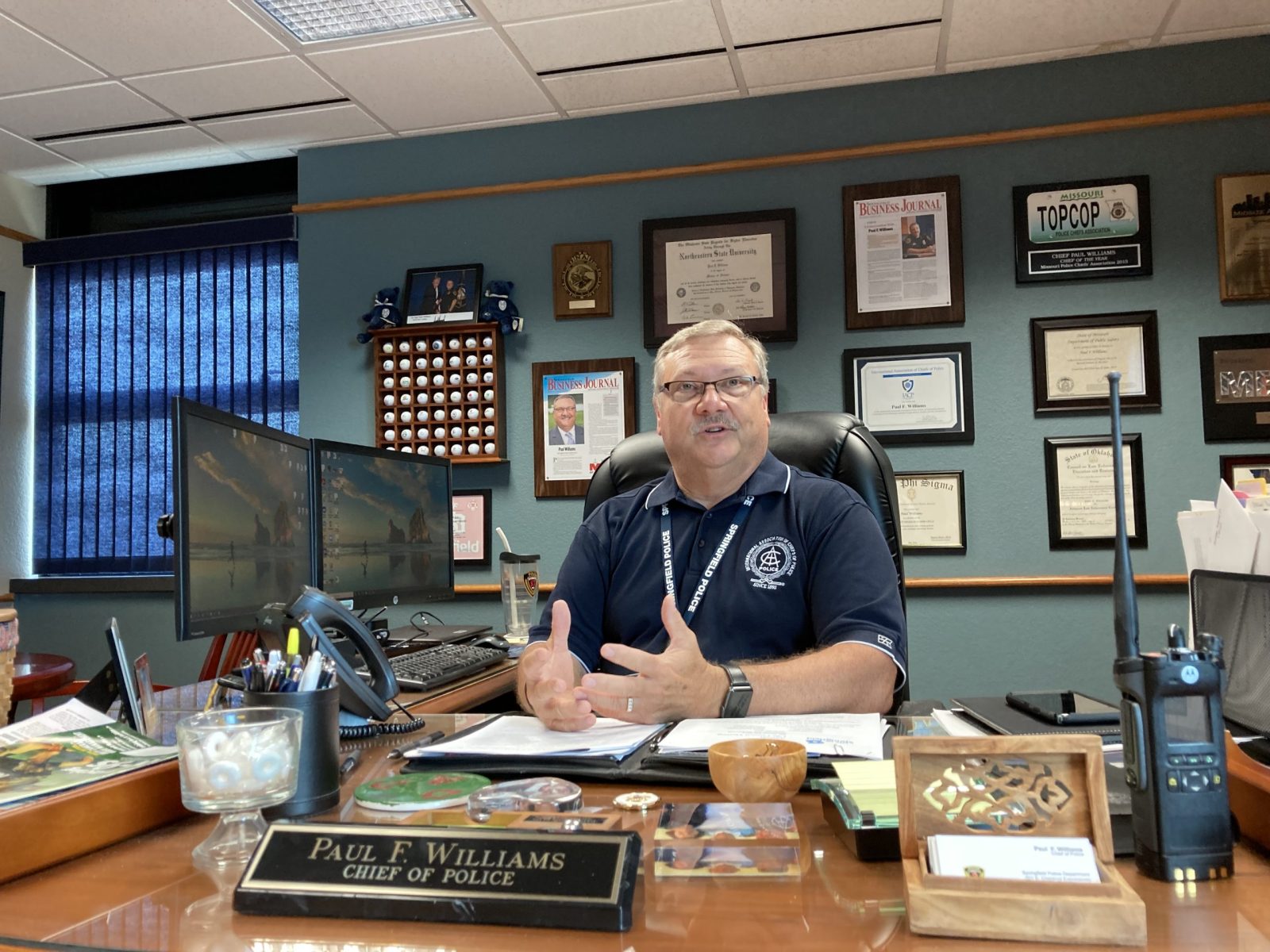A Springfiled nonprofit best known for creating tiny home communities is challenging the new Missouri law that criminalizes unauthorized camping on state property.
The Gathering Tree, the nonprofit organization that operates Eden Village I and II, filed a lawsuit Friday against the State of Missouri and Eric S. Schmitt (in his official capacity as Missouri Attorney General) alleging that House Bill 1606, as it relates to homelessness and our organization, is in direct violation of the Missouri State Constitution.
Eden Village I and II are tiny home communities that provide affordable housing and wrap-around services for disabled, chronically homeless people.
According to the Gathering Tree/Eden Village petition, House Bill 1606 violates Article 3 of the state's constitution “in that it violates the single subject and clear title requirements on its face” and “the final version of the bill changed its original purpose.”
HB 1606, which goes into effect in January, reads in part: “No person shall be permitted to use state-owned lands for unauthorized sleeping, camping or long-term shelter. Any violation shall be a Class C misdemeanor; however, the first offense shall be a warning with no citation.”
The law goes on to say that the Attorney General has “the power to bring a civil action to enjoin the political subdivision from failing to enforce any ordinances prohibiting public camping, sleeping, or obstruction of sidewalks.”
In addition to making it a misdemeanor crime to sleep or camp on state-owned property, the bill says that political subdivisions, primarily municipalities, must maintain a per-capita homelessness rate at or below the state average or enforce ordinances that comply with the law, or could face a loss in state funding or civil action by the Attorney General.
Springfield likely to lose state funds
According to the Department of Housing and Urban Development (HUD), Missouri’s per capita rate of homelessness in 2021 was .000834. The per capita rate of homelessness for the Springfield/Greene, Christian and Webster County Continuum of Care was .00134 — well above the state’s.
Story continues below
Local service providers and advocates have voiced concerns that the new law is going to cause Springfield and other urban communities in the state to lose state funding for homeless services. (Urban communities tend to have higher rates of homelessness because people migrate to them seeking jobs, shelter and services.)
The National Coalition for Housing Justice (NCHJ) has expressed concern over the ramifications of the bill, particularly for the urban communities in the state.
“It is highly likely that one year after this law is initiated communities such as St. Louis, Kansas City, Springfield, Jefferson City, Columbia and even Branson will be under threat to lose their state funding for housing/homelessness because they will not be able to show any progress on reducing the numbers of homeless people,” a statement from the National Coalition for the Homeless reads.
Gathering Tree could lose future funding
In establishing standing to challenge the new law, the petition filed Friday in Cole County states that “Eden Village has sought, and may seek in the future, state and federal funds received by the state for housing or homelessness.”
The Gathering Tree opened Eden Village I in 2018. It is located at 2801 E. Division St. and has 31 400-square-foot homes.

Eden Village II opened in 2020 at 3155 W. Brower St. It has 24 tiny homes.
Eden Village residents, many of whom are on disability, will pay their own rent at $300 a month. There is no deposit and utilities are included. Residents have access to case managers, mental health and medical providers and activities.
The Gathering Tree also operates Revive 66, a campground with solar-powered teardrop trailers that can be rented for $10 a night by anyone, including homeless people.
“While the vast majority of HB Bill 1606 has absolutely nothing to do with homelessness, provisions inserted in this Bill limiting funds to organizations like Eden Village, and criminalizing homelessness, are unacceptable,” a news release sent Monday reads.

“The Gathering Tree supports bipartisan efforts to find solutions for Missouri’s needs but adding provisions that harm the unsheltered should not be a part of any set of solutions. We urge Missouri’s lawmakers to take immediate action to remove those parts of HB 1606 harming the unsheltered.”
The news release sent to media on Monday reads in part:
“Among the hundreds of pages in this Bill is a section, totally unrelated to most of the Bill, which threatens to hinder the work of organizations assisting Missouri’s homeless community. A small section of this Bill’s provisions change the landscape by which organizations in this State are deemed eligible to receive funds for the support of the unsheltered.
“For example, the Bill requires state and federal funds for the homeless to be used only for shelters in parking areas, in camping facilities, and in temporary, individual and congregate shelters. Funds for organizations providing shelter to the homeless are now limited to these models of shelter, now mandating how organizations can provide shelter and eliminating permanent shelter options. Failure to meet these new government mandates threatens to prevent organizations, especially those providing permanent shelter, from receiving assistance through the federal and state government.
“In addition to limiting how organizations can provide shelter, the Bill also increases criminal penalties for the homeless, making it a Class C misdemeanor for sleeping or camping on state land. Further, the Bill commandeers the state’s Attorney General’s office to enforce local ordinances punishing the homeless for their presence on sidewalks and streets. In short, the Bill takes the design of solutions out of the hands of organizations doing work with the homeless and takes control away from municipalities and local law enforcement making daily decisions about enforcement of municipal rules and regulations. Further criminalizing homelessness threatens to unnecessarily increase our prison population, create more obstacles to the homeless finding shelter and employment, and dehumanize those already pushed into the margin of society by addiction, mental health diagnoses, poverty and circumstances beyond their control. It should not be a crime to be homeless.”



